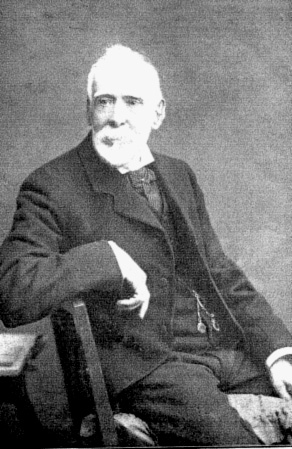Timothy Daniel Sullivan facts for kids
Quick facts for kids
Timothy Daniel Sullivan
|
|
|---|---|
 |
|
| Lord Mayor of Dublin | |
| In office 4 July 1886 – 15 July 1888 |
|
| Preceded by | John O'Connor |
| Succeeded by | Thomas Sexton |
| MP for West Donegal | |
| In office 7 July 1892 – 25 October 1900 |
|
| Preceded by | James Joseph Dalton |
| Succeeded by | James Boyle |
| MP for Dublin College Green | |
| In office 1 December 1885 – 5 July 1892 |
|
| Preceded by | New office |
| Succeeded by | Joseph Edward Kenny |
| MP for Westmeath | |
| In office 1 April 1880 – 25 November 1885 |
|
| Preceded by | Patrick James Smyth Lord Robert Montagu |
| Succeeded by | Office abolished |
| Personal details | |
| Born |
Timothy Daniel Sullivan
29 May 1827 Bantry, County Cork, Ireland |
| Died | 14 March 1914 (aged 86) Dublin, Ireland |
| Political party | Irish Parliamentary Party |
| Spouses | Catherine (Kate) Healy (m. 1856; d. 1914) |
| Relations |
|
| Children | 3 |
| Alma mater | Trinity College Dublin |
Timothy Daniel Sullivan (born May 29, 1827 – died March 31, 1914) was an important Irish figure. He was a nationalist who loved his country. He also worked as a journalist, a politician, and a poet. He is famous for writing the Irish national song "God Save Ireland" in 1867. Sullivan also served as the Lord Mayor of Dublin for two years, from 1886 to 1888. He was a Member of Parliament (MP) from 1880 to 1900. This meant he helped make laws for the country.
Contents
Who Was Timothy Daniel Sullivan?
Timothy Daniel Sullivan was born in Bantry, County Cork, Ireland. He believed strongly that Ireland should have its own government. He thought this would bring peace and happiness to the country. He spent much of his life working towards this goal.
A Voice for Ireland
Sullivan was part of the Home Rule League. This group wanted Ireland to have more control over its own affairs. He supported a leader named Charles Stewart Parnell. In 1882, Sullivan joined the Irish Parliamentary Party. This party worked to get Home Rule for Ireland.
Later, the party split into two groups in 1891. Sullivan joined the group that did not support Parnell anymore. This split ended in 1900 when the groups came back together.
Sullivan was elected as a MP for different areas.
- He represented Westmeath from 1880 to 1885.
- Then, he represented Dublin College Green starting in 1885.
- After losing an election in 1892, he was quickly elected again for West Donegal. He stayed an MP for West Donegal until he retired in 1900.
He also served as the Lord Mayor of Dublin in 1886 and 1887. This was a very important job in the city.
A Writer and Editor
Besides being a politician, Sullivan was a talented writer. He owned and edited several newspapers and magazines. These included The Nation, Dublin Weekly News, and Young Ireland.
In 1887, he published news about meetings of the Irish National League. Because of this, he was put in prison for two months. This happened under a law called the Crimes Act.
Sullivan wrote many popular songs and poems. His most famous song is "God Save Ireland", which became a national hymn. He also wrote "All for Ireland! One for all!" and other well-known pieces like Dear Old Ireland.
His Family's Legacy
Timothy Daniel Sullivan was married to Catherine (Kate) Healy. Her brother, Tim Healy, became the first Governor General of the Irish Free State in 1922.
Many of Sullivan's family members also became very important people:
- His son, Timothy, became the Chief Justice of Ireland from 1936 to 1946. This is the highest judge in the country.
- His daughter, Frances, worked to promote the Irish language. She taught Irish and was active in the Gaelic League.
- His daughter, Anne, had many children. One of her sons was Kevin O'Higgins, a very important politician in the 1920s.
- Sullivan's great-grandson, Tom O'Higgins, also served as Chief Justice of Ireland from 1974 to 1985.
His brother, Alexander Martin Sullivan, was also a writer and editor. He owned The Nation newspaper before Timothy Daniel Sullivan. He was also a strong supporter of Irish culture and self-government.
 | Bessie Coleman |
 | Spann Watson |
 | Jill E. Brown |
 | Sherman W. White |

